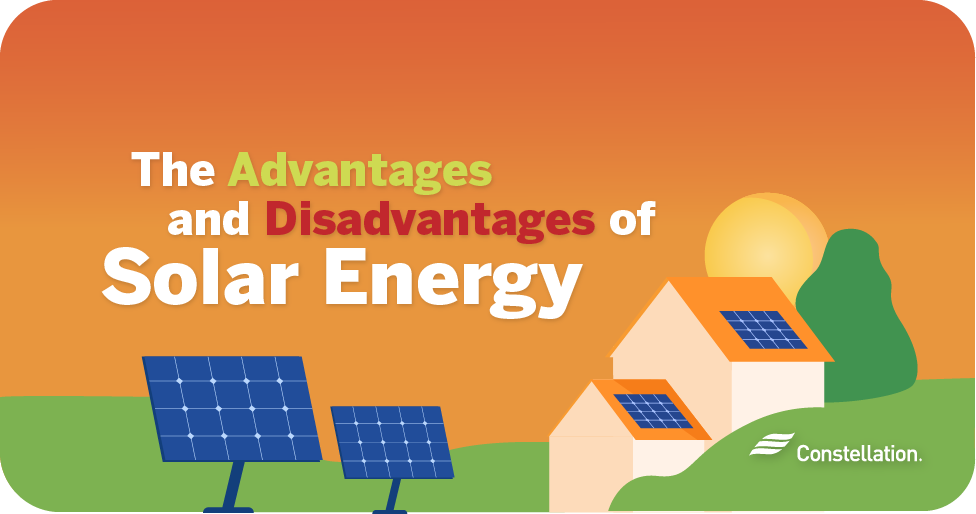Just How Solar Energy Can Assist You Conserve Cash and Reduce Your Carbon Impact
The integration of solar power into your energy portfolio presents an engaging possibility for both financial cost savings and environmental stewardship. By using the sunlight's power, home owners can substantially reduce their monthly utility expenditures while additionally guarding versus the changability of future energy costs. Moreover, the transition to solar adds to a significant reduction in carbon emissions, aligning individual financing with more comprehensive ecological objectives. As various federal government incentives appear, the inquiry develops: how can one effectively browse the preliminary investments and recurring benefits of solar technology to maximize both financial and environmental gains?
Understanding Solar Power Financial Savings
While the change to solar power usually involves a preliminary financial investment, comprehending solar power cost savings is critical for property owners and services alike. Solar power systems can dramatically minimize power expenses by utilizing the sunlight's power, converting into significant lasting financial benefits. By creating their own electrical power, individuals decrease dependence on grid power, which undergoes changing costs. These cost savings can gather over time, typically causing a fast return on financial investment.
Additionally, solar power systems may get approved for various financial incentives, consisting of tax obligation credit histories and refunds, additionally improving their cost-effectiveness. The accessibility of net metering permits customers to offer excess energy back to the grid, producing an additional earnings stream. These variables add to the general cost savings related to solar energy.

In enhancement to route monetary cost savings, solar power supplies the included advantage of raising home worth. Residences outfitted with photovoltaic panels are often more attractive to buyers, as they guarantee lower energy costs - Simply Solar Illinois. Understanding these elements is essential for any individual taking into consideration solar power, as it highlights not simply the prospective financial gains, but additionally the broader ecological and economic benefits of taking on renewable resource options
Preliminary Expenses vs. Long-Term Benefits
When evaluating solar energy, it is very important to weigh the preliminary costs versus the long-lasting benefits. The ahead of time financial investment for solar panels, installation, and related tools can be considerable, frequently ranging from $15,000 to $30,000, depending upon the system dimension and home power needs. This first expenditure might hinder some house owners; however, it is crucial to take into consideration the prospective financial savings in time.
Once installed, solar power systems can considerably minimize and even remove month-to-month power expenses, leading to significant lasting monetary advantages. Studies show that homeowners can conserve anywhere from $10,000 to $30,000 over the life expectancy of their solar system, normally 25 years. Additionally, lots of states offer rewards, tax obligation credit reports, and rebates that can balance out first costs, other making solar a lot more accessible.

Reducing Your Carbon Impact
Reducing your carbon impact is a vital factor to consider in today's ecologically conscious culture, and taking on solar power is just one of the most reliable strategies to accomplish this objective. Solar power is a tidy, renewable energy that significantly diminishes dependence on fossil fuels, which are significant factors to greenhouse gas emissions.

In addition, the extensive fostering of solar modern technology motivates the advancement of eco-friendly jobs and sustains innovations in power storage and efficiency. The even more people and organizations spend in solar power, the better the collective decrease in carbon emissions, cultivating a cleaner atmosphere for future generations.
Federal Government Incentives and Refunds
Taking on solar power not just benefits the atmosphere yet can also cause significant monetary cost savings, especially with the accessibility of federal government incentives and refunds. Numerous federal, state, and neighborhood programs are designed to motivate home owners and companies to purchase solar power systems, making the shift a lot more budget-friendly.
Among one of the most popular incentives is the Federal Financial Investment Tax Obligation Credit Rating (ITC), which enables planetary system proprietors to subtract a significant percentage of the setup expenses from their federal tax obligations. This incentive has actually been pivotal in reducing the in advance expenditures connected with solar energy systems. Additionally, several states provide their own tax credit reports, gives, and refunds that can additionally improve savings.
Furthermore, some city governments give real estate tax exemptions for solar installations, guaranteeing that home owners do not face increased real estate tax as a result of their renewable power financial investments. Energy business may also supply motivations, consisting of web metering Go Here and feed-in tariffs, which allow solar power individuals to offer excess power back to the grid.
Choosing the Right Planetary System
Picking the ideal planetary system is vital for maximizing power effectiveness and financial advantages. The decision depends upon numerous aspects, including power go to this web-site requirements, budget, and readily available area. Property owners need to start by assessing their power usage to determine the system dimension required for optimal efficiency.
Next, think about the different sorts of solar innovations available. Simply Solar Illinois. Photovoltaic Or Pv (PV) panels are the most usual, converting sunshine directly into electricity, while solar thermal systems concentrate on home heating water. Each type has distinctive advantages relying on specific demands
Spending plan considerations are additionally critical. First installation expenses can vary substantially, so it is very important to contrast quotes from numerous providers and check out funding options. Government incentives and refunds can better reduce the monetary concern, making planetary systems much more obtainable.
Final Thought
In recap, solar energy provides a sensible solution for accomplishing considerable price financial savings while at the same time lessening carbon exhausts. The initial investment, though considerable, returns significant lasting economic advantages, with potential savings ranging from $10,000 to $30,000 over 25 years. The ecological benefits of solar power add to lasting techniques important for combating climate change. Government motivations improve the expediency of solar modern technology fostering, motivating a shift towards a cleaner, a lot more financially reliable power source.